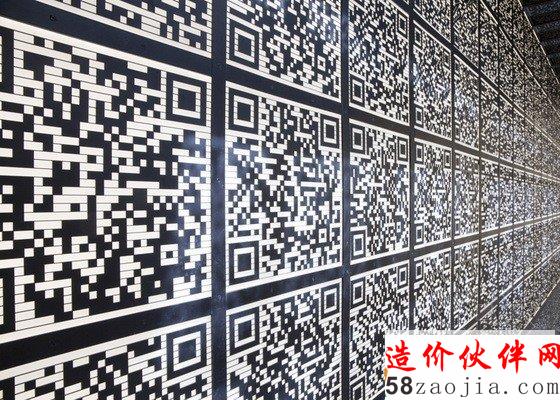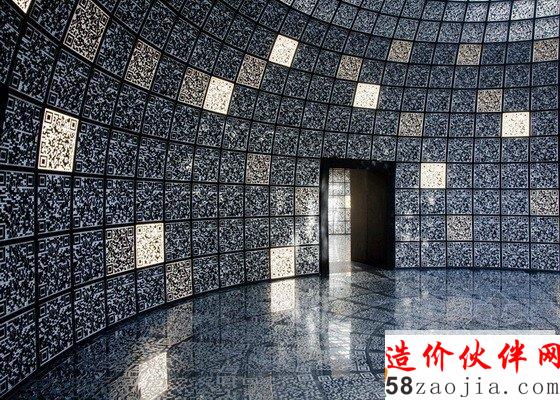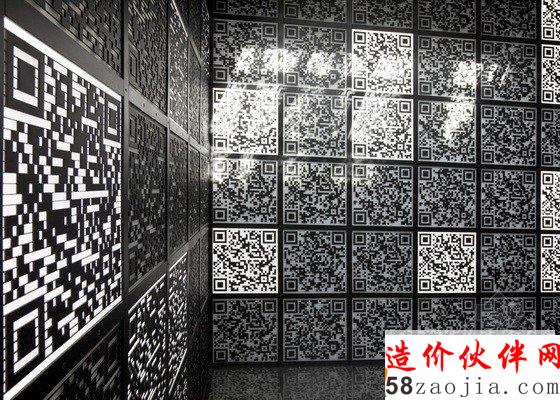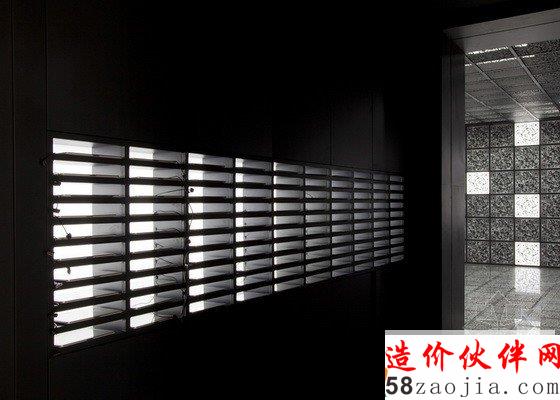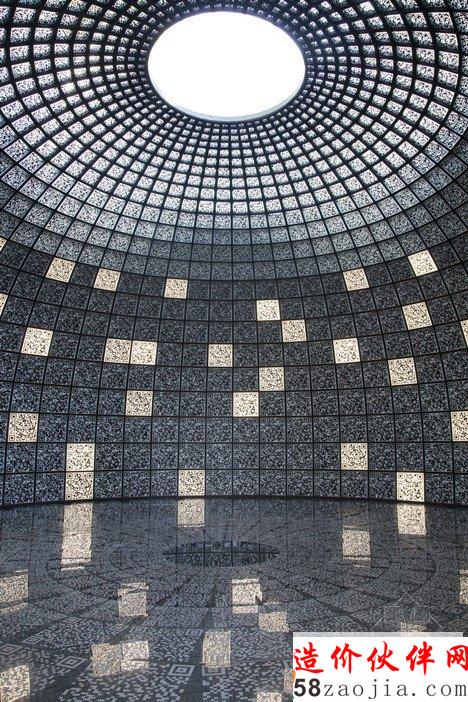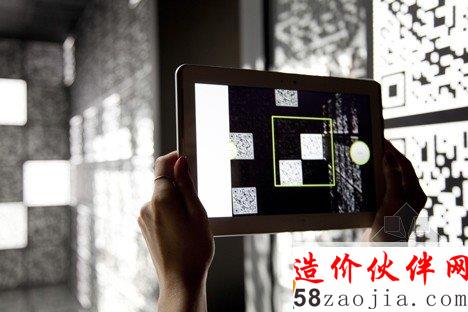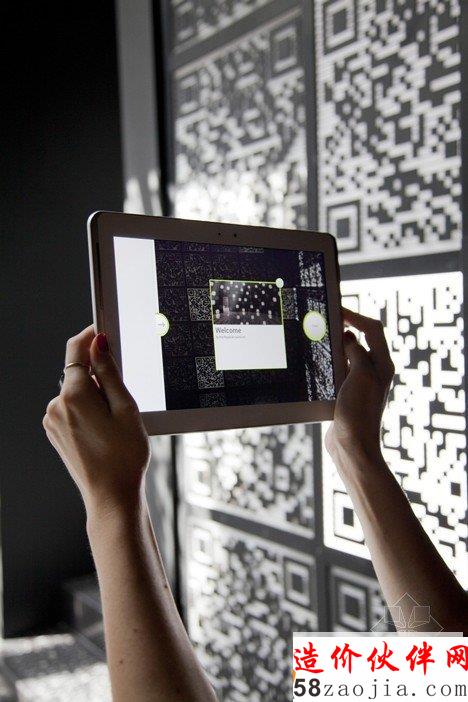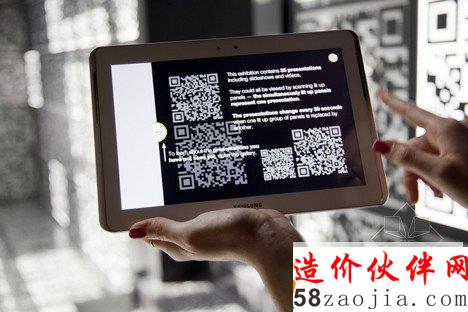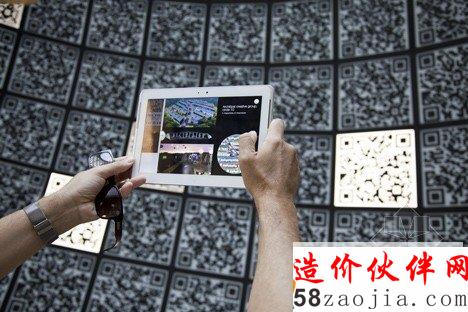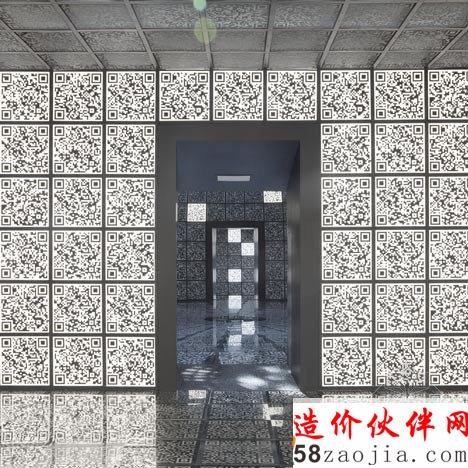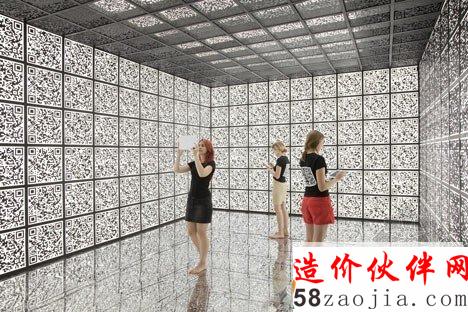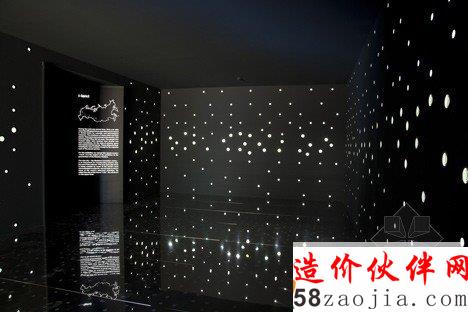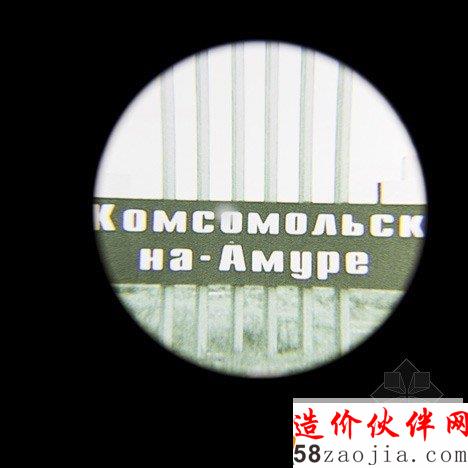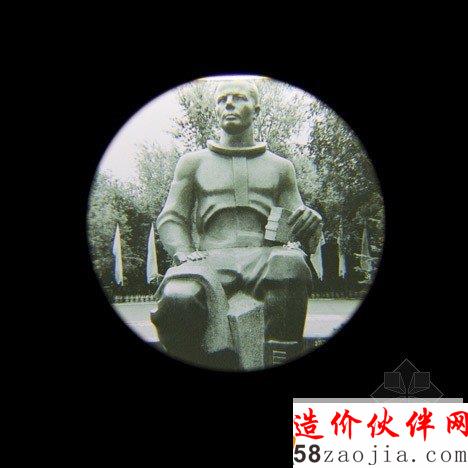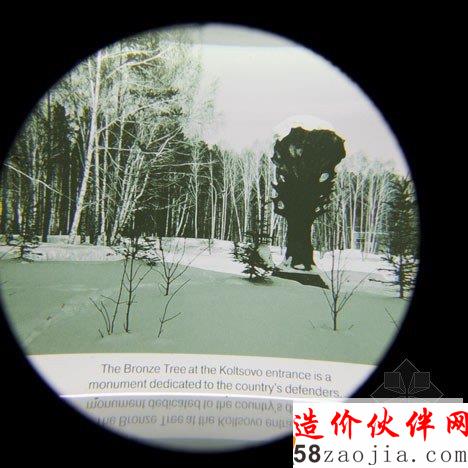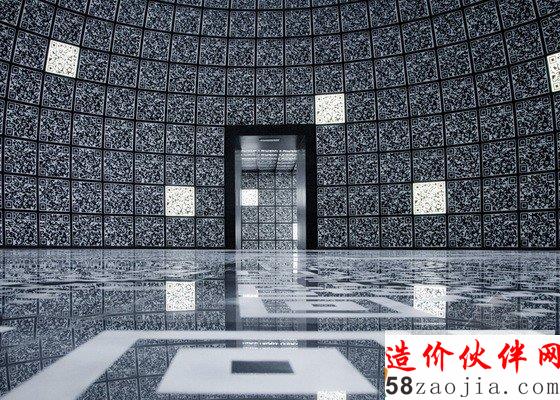
第十三届威尼斯建筑双年展中的俄罗斯馆顶层的室内表皮都覆盖着二维码,游客根据平板电脑解密,以获取为俄罗斯城市打造的一个新科学项目背后的设计想法。楼下,游客可以透过镜头看见一些封闭的机密的建于苏联时代的科学城镇,从而形成楼上楼下封闭和开放形式之间的对比。即将在2017年建成的斯科尔科沃科学技术中心位于莫斯科附近,项目将会吸引IT,生物医学,核研究,能源及空间技术领域的500多家公司,同时还包含一个大学和住宅空间。参与设计的建筑师团队包括:皮埃尔•德默隆(Pierre de Meuron),雷姆•库哈斯(Rem Koolhaas),妹岛和世(Kazuyo Sejima),本届策展人戴维•奇普菲尔德(David Chipperfield),还有一些随着项目进行,参与设计竞赛获胜的建筑师。展览由SPEECH Tchoban & Kuznetsov事务所的Sergei Tchoban 和 Sergey Kuznetsov策展,他们是斯科尔科沃科学技术中心项目的总体规划建筑师,同时也是两年前威尼斯俄罗斯馆“俄罗斯工厂”展览的参与团队。
Every surface inside the top floor of the Russian Pavilion at the Venice Architecture Biennale is covered in QR codes, which visitors decode using tablet computers to explore ideas for a new Russian city dedicated to science. Downstairs, visitors can peer through lenses to catch a glimpse of the gated and secretive science towns established under the Soviet Union, intended to provide a contrast with the open and collaborative vision presented upstairs. The Skolkovo science and technology centre will be located near Moscow by 2017 and bring together 500 companies working on IT, biomedical research, nuclear research, energy and space technology plus a university and homes. The architectural team includes Pierre de Meuron, Rem Koolhaas, Kazuyo Sejima and the Venice Architecture Biennale’s director David Chipperfield, plus the winners of several rounds of competitions to be held as the project progresses.

